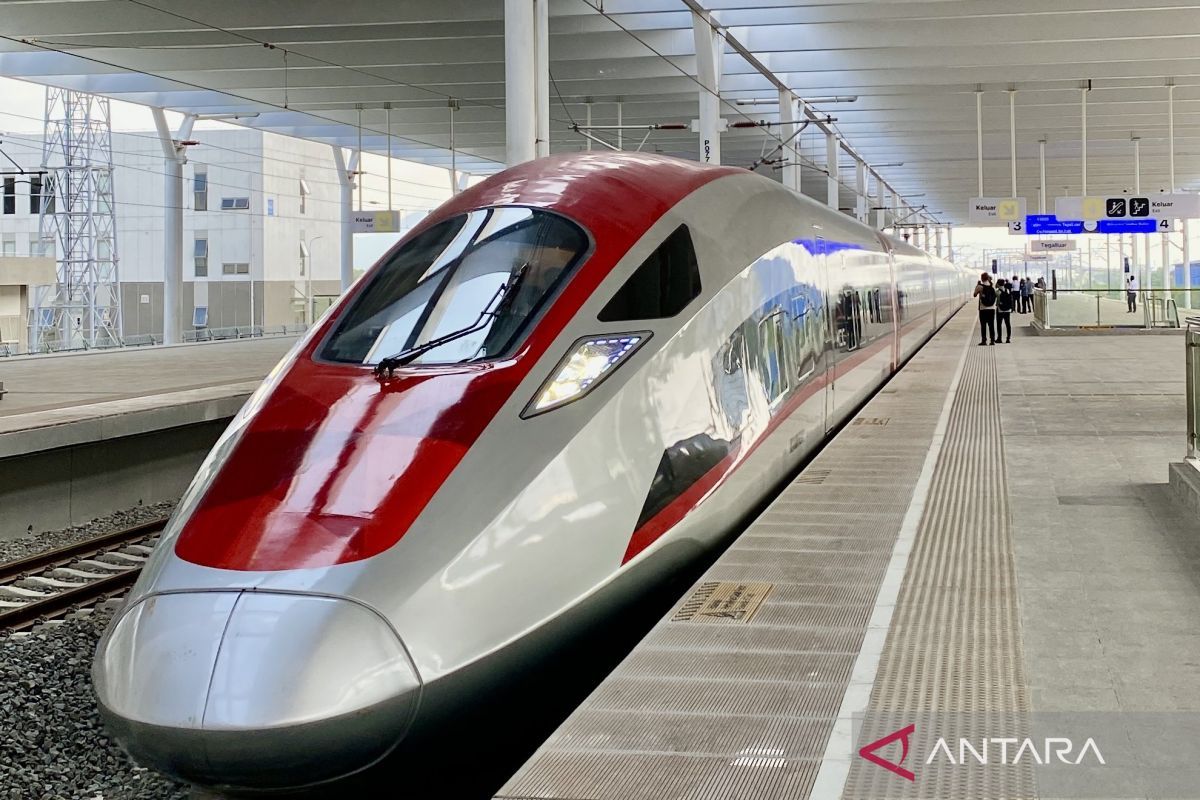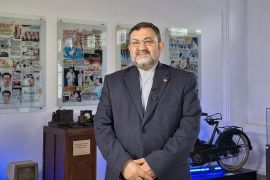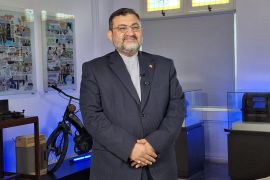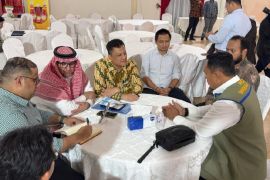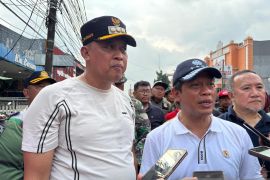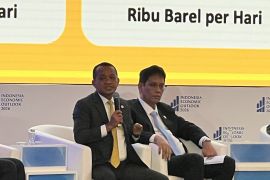The total investment for the railway project reached US$7.27 billion, or approximately Rp120.38 trillion, with about 75 percent of the funding sourced from a China Development Bank (CDB) loan carrying an annual interest rate of two percent.
The Whoosh debt has drawn public scrutiny, with total liabilities estimated at around Rp116 trillion (US$7 billion), raising concerns about financial sustainability and potential impacts on the state budget.
Finance Minister Purbaya Yudhi Sadewa stressed that the government will not use the state budget to service the project’s debt, emphasizing that financial responsibility lies with the state-owned enterprises involved.
On October 23, Danantara CEO and State-Owned Enterprises Regulatory Agency Head Dony Oskaria said negotiations with China on debt restructuring are ongoing.
He noted that Danantara’s negotiation team will soon travel to Beijing to discuss key aspects of the loan agreement, including its term, interest rate, and currency denomination.
The talks involve the Chinese government and partner companies within the PT Kereta Cepat Indonesia-China (KCIC) consortium, the Whoosh operator.
The restructuring aims to secure a more favorable payment scheme while ensuring the project’s long-term sustainability without straining Indonesia’s fiscal capacity.
Modern transportation
Whoosh began commercial operations on October 17, 2023, making Indonesia the first country in Southeast Asia to operate a high-speed rail system.
Since then, it has carried more than 12 million passengers with a 99.9 percent on-time rate and zero accidents, according to KCIC data.
Ridership continues to grow, with a record 26,770 daily passengers in June 2025. Foreign travelers accounted for 566,829 riders as of September, reflecting Whoosh’s rising appeal as a tourist attraction.
The project has also stimulated local businesses, with 188 kiosks now operating across stations — 76 of them run by micro, small, and medium enterprises (MSMEs) — selling food, souvenirs, and travel items.
Whoosh has emerged as a symbol of Indonesia’s modern transport transformation, integrating advanced technology and sustainable operations.
The line connects Jakarta and Bandung in under an hour, significantly cutting travel time and easing congestion along the busy corridor.
Citing its social, economic, and environmental benefits, the government has reiterated its commitment to advancing modern transportation infrastructure — even as the debt issue persists.
President Prabowo Subianto has said he will take full responsibility for all Whoosh-related debts, underscoring that Indonesia has sufficient financial capacity to maintain operations without burdening the state budget.
He has even instructed his Cabinet ministers to devise the best possible scheme to resolve the debt problem of this Jakarta–Bandung High-Speed Railway (KCJB) project.
The instruction was issued during a limited cabinet meeting on October 29 attended by Coordinating Minister for Economic Affairs Airlangga Hartarto, Finance Minister Purbaya Yudhi Sadewa, and Danantara CEO Rosan Perkasa Roeslani.
State Secretary Prasetyo Hadi said the head of state called for a thorough review of all financial scenarios, including options to extend the loan period to ease the project’s financial burden.
According to Prabowo, public transportation projects like Whoosh should not be judged solely by profit or loss but by their broader public benefits.
He urged the public not to politicize the Whoosh issue, asserting that Indonesia’s economy is strong enough to support strategic infrastructure initiatives.
Continuing development
Prabowo also reaffirmed his plan to extend the Whoosh line from Jakarta–Bandung to Surabaya and eventually to Banyuwangi, at the eastern tip of Java Island.
The Jakarta–Surabaya extension will cut train travel time from 10 hours to about 3.5 hours, with the government planning to make ticket prices more affordable than the current Jakarta–Bandung route.
Prabowo described Whoosh as a symbol of Indonesia–China cooperation and a key step toward mastering modern transportation technology.
He identified railway development as a top priority for his administration due to its strategic role in meeting public transport needs and improving national connectivity.
Trains and other mass transit systems, which carry around 486 million passengers annually, are vital to supporting modern urban life, he said.
The government, therefore, will continue enhancing services such as the Greater Jakarta Commuter Line and the Jakarta–Bogor–Depok–Bekasi (Jabodebek) Light Rail Transit (LRT) system.
However, the Whoosh debt issue should serve as a lesson in prudent governance, reminding policymakers to conduct comprehensive studies and assess public benefits, fiscal capacity, and partner selection carefully before undertaking future infrastructure projects.
Related news: Prabowo assures full responsibility for Whoosh high-speed rail debt
Related news: Prabowo plans to extend Whoosh high-speed rail to Banyuwangi
Editor: Rahmad Nasution
Copyright © ANTARA 2025
